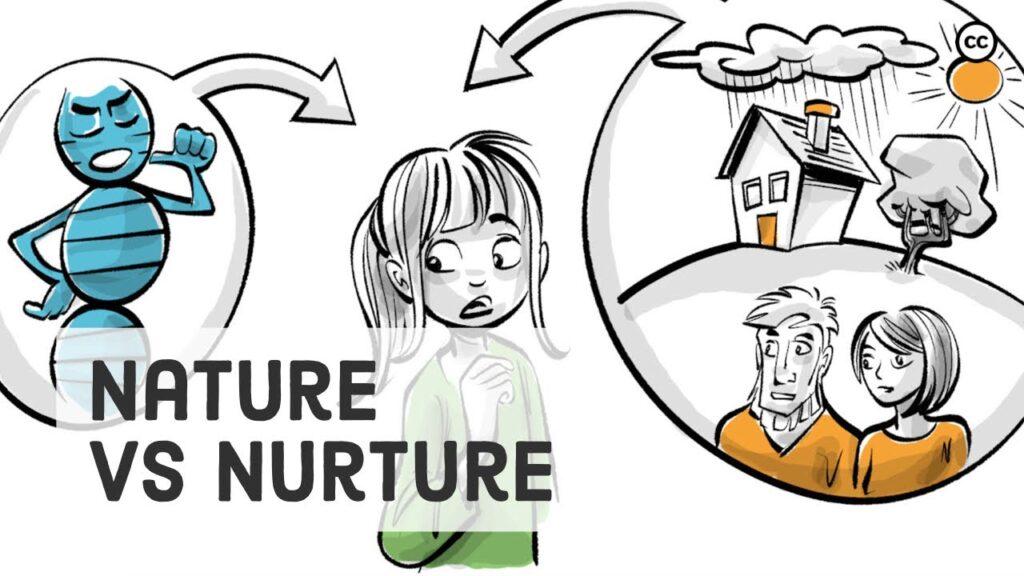The nature vs. nurture debate: How much of our minds are shaped by our genetics, and how much by our environment?
The nature vs. nurture debate is one of the most enduring and contentious issues in psychology and the social sciences. The debate centers around the extent to which our genes (nature) or our environment (nurture) determines our behavior, personality, and other mental characteristics.
On the one hand, proponents of the nature side of the debate argue that our genes play a dominant role in shaping our minds. They argue that our genes determine our basic physical and cognitive traits, such as our height, eye color, intelligence, and personality.
Certain genetic variations strongly associate traits such as intelligence, shyness, and impulsivity, as shown by research.

On the other hand, supporters of the nurture side of the debate argue that our environment plays a crucial role in shaping our minds. They argue that our experiences, upbringing, and socialization are the most important factors that shape our behavior and personality.
Children raised in abusive environments are more likely to develop mental health problems, as shown by research.
Despite the long-standing nature vs. nurture debate, most researchers agree that both play important roles in shaping our minds.
Researchers widely accept that our genes set the stage for our mental development, but our experiences and environment actively influence the expression of our genes and the development of our minds over time.
One way that researchers study the interplay between nature and nurture is through twin studies. Identical twins share the same genetic makeup, while fraternal twins share only half of their genes.
By comparing the behavior and personality of identical and fraternal twins. Researchers can estimate the extent to which genes and environment contribute to individual differences.
For example, studies of intelligence in twins have found that genetics play a significant role in determining intelligence, accounting for about 50% of the variance in IQ scores. However, studies have also found that environmental factors, such as education and upbringing, can also have a significant impact on intelligence.
Another way that researchers study the nature vs. nurture debate is through studies of adopted children. Adoptive parents share no genetic similarities with their adopted children, but they often raise them in similar environments.
By comparing the behavior and personality of adopted children with their biological and adoptive parents. Researchers can estimate the relative contribution of genetics and environment.
Studies of adopted children have found that genetics play a significant role in determining certain mental characteristics. The intelligence, but that environment also plays an important role.
For example, one study found that the IQ scores of adopted children showed a stronger correlation with the IQ scores of their biological parents than with those of their adoptive parents.
In addition to twin and adoption studies, researchers have also used molecular genetics to study the interplay. Molecular genetics is the study of how genes interact with each other and with the environment to produce complex traits.
For example, researchers have identified a specific gene variant associated with cognitive flexibility, known as the COMT gene. The ability to switch between different tasks or mental states.
However, this gene variant only affects cognitive flexibility in people who experience high levels of stress. Suggesting that environmental factors can influence the expression of genes and their impact on mental traits.
Conclusion
The nature vs. nurture debate is a complex and ongoing discussion in the field of psychology and the social sciences. While researchers still have much to learn about the interplay between genetics and environment. Most researchers agree that both nature and nurture play important roles in shaping our minds. 온라인카지노
By studying the interplay between genetics and environment through twin studies, adoption studies, and molecular genetics. Researchers can gain a better understanding of the complex factors that contribute to mental development and behavior.